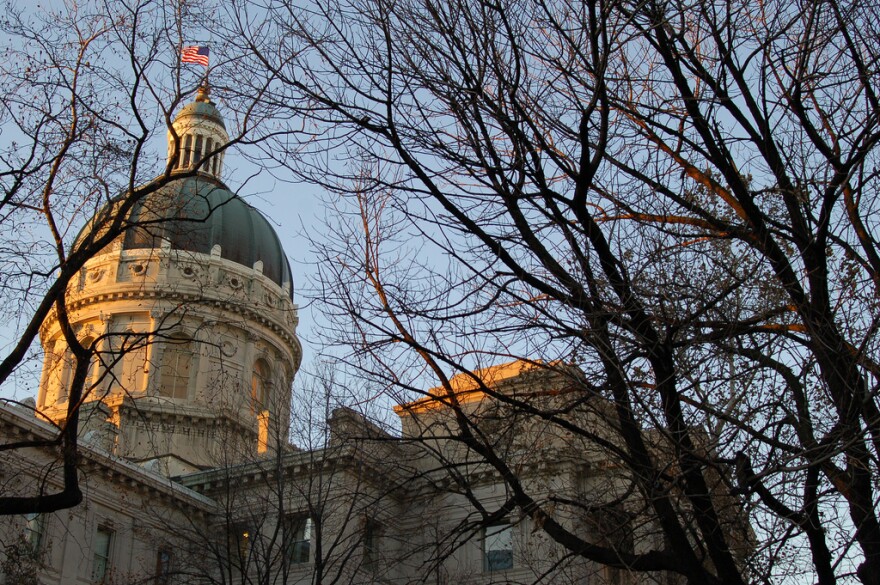PROPERTY TAXES FOR FARMERS
The House and Senate Thursday passed a bill that addresses what supporters call rapidly increasing tax bills for farmers. The bill, now headed to the governor’s desk, changes the way those taxes are calculated.
Indiana’s agricultural land taxes are based on income rather than the underlying value of property. Some say the formula that generates that tax is outdated, and that a string of bad years for crop farmers has amplified the problem.
Negotiations over the bill lasted up until the last moments of session – and were marked throughout the process by a push-and-pull between farmers and lawmakers.
Those debates resulted in a bill that revises the tax formula in a way that Republican Senator Brandt Hershman (Buck Creek) says will ultimately create significant savings for the farm community.
“But it will also provide more stability and predictability,” he says, “so that the formula is not zig-zagging up and down with regularity.”
Indiana Farm Bureau Representative Katrina Hall says the bill is desperately needed by Hoosier farmers.
“Farmers across the state have on average, since the tax reforms in 2007, had their tax bills increase 63 percent, which is way out of line with the changes that other groups of taxpayers would have had,” Hall says.
Some concerns remain that the bill will shift the tax burden to homeowners; legislative leaders say they think that shift will be minor.
FINAL ROAD FUNDING AGREEMENT REACHED
Lawmakers late Thursday approved a billion-dollar, two-year package for critical state and local road construction and maintenance, what its architects call it a bridge to next year’s budget.
The bill on the way to the governor gives cities, towns and counties across Indiana will about two-thirds of the one-billion dollar roads package. The money comes from local income tax reserve dollars, the state surplus, and a shift in the state sales tax on gasoline. Communities also get the freedom to direct more tax options to roads. Part of this funding will come via a matching grant program…one that Democratic Senator Karen Tallian (Portage) says is flawed:
“These counties with the least ability to raise dollars are also going to be the least able to get grant money,” she says.
State roads will receive a little more than $300 million over the next two years, which all parties – including House Roads Committee Chair Ed Soliday – acknowledge is, at best, a short-term solution.
“We only funded the state roads for half of the next cycle to ensure that we would have to come back to the table and address a long range plan,” says Soliday.
The road funding package also creates a task force, compromised of state and local officials, to develop that plan over the summer.
The road funding legislation also includes two items unrelated to roads: $42 million in funding for each winner of the Regional Cities Initiative (Northeast, North Central and Southwest Indiana) and additional money for Hoosier retirees, the so-called 13th pension check.
TEACHER SCHOLARSHIPS
High school students wanting to be teachers will be able to apply to a state funded scholarship program if they commit to teaching in Indiana after college.
House Speaker Brian Bosma wrote the bill to address the teacher shortage in Indiana. The program allows for 200 students to receive up to $7,500 in tuition assistance each, as long as they study education and commit to teaching in Indiana.
Bosma says he wrote the bill so high achieving high school students can apply, because he wants the best students in the state to consider a career in teaching.
“That actions we take get depicted as dishonoring teachers, but it couldn’t be anything further from the truth,” Bosma says. “I firmly believe that single, most important indicator of academic success for a young person is an outstanding, interested teacher.”
The Commission for Higher Education will spend the next year developing the application process, marketing to potential recipient’s and protocol for running the program. The first scholarships will be awarded in fall 2017.






